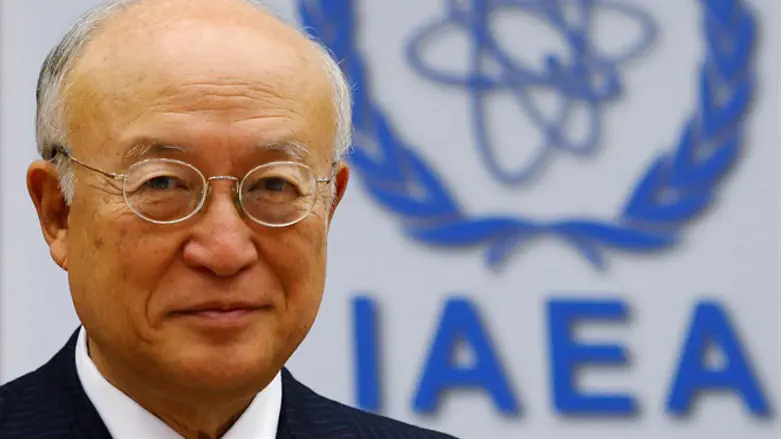
The head of the International Atomic Energy Agency (IAEA), the UN nuclear watchdog, on Thursday chided Iran for exceeding for the second time an agreed upper limit for nuclear material set out in last year's deal with world powers, AFP reports.
A report by the IAEA last week showed that Iran's stock of so-called heavy water had inched above the 130-ton level set out in the landmark deal.
Heavy water, a modified form of normal water, is used in certain types of nuclear reactor. Plutonium for use in nuclear weapons can be extracted from fuel rods used in heavy water reactors.
"Iran has since made preparations to transfer a quantity of heavy water out of the country" which will bring it below the ceiling, IAEA chief Yukiya Amano told the agency's board on Thursday.
"It is important that such situations should be avoided in future in order to maintain international confidence in the implementation" of the deal, he added, according to AFP.
The July 2015 nuclear deal between Iran and six major powers states that Iran's "needs" are 130 metric tons of heavy water and that any excess must be "made available for export".
The confidential IAEA report, seen by AFP, said that Iran exceeded this level --- for the second time -- by 100 kilos but that Iran had undertaken to ship abroad five tons. The first time that Iran briefly exceeded the limit occurred this past February.
Reza Najafi, Iran's envoy to the IAEA, said Thursday that Iran was "making the preparations" for doing so, telling reporters that the amount to be sold abroad may even exceed five tons.
He also questioned whether the 130-tonne level was a strict limit.
U.S. ambassador Laura Holgate urged Iran to complete the process of exporting the extra material "without delay", according to AFP.
"Nothing short of full implementation will assure the international community that Iran continues to uphold its commitments," she told the IAEA board of governors meeting.
"Simply notifying states that this heavy water is for sale without removing it from Iran does not fulfil" Iran's commitments under the deal, Holgate added.
Besides the excess heavy water, the IAEA's quarterly report, the fourth since the nuclear deal entered into force in January 2016, confirmed that Iran continues to abide by the deal.
The number of uranium centrifuges in operation and Iran's uranium stockpile -- seen as much bigger areas of concern than heavy water -- were below agreed limits.
The deal also saw Iran slash the number of centrifuges and its uranium stockpile, as well as remove the reactor core from its planned heavy water reactor at Arak.
The IAEA indicated this past September as well that Iran had kept to the nuclear deal to which it agreed with six world powers, which limits its stockpiles of substances that could be used to make atomic weapons.
The report came after a U.S. think-tank said Iran had been secretly allowed to overstep certain thresholds in order to get the deal through on time.
The White House later dismissed the idea that Iran was secretly allowed to skirt restrictions on its uranium stockpile, with White House spokesman Josh Earnest insisting Iran “has been in compliance with the agreement” since January 16, when the deal was implemented.
